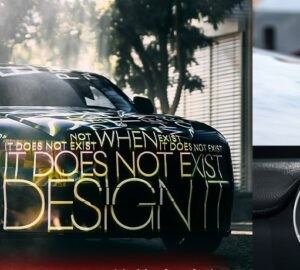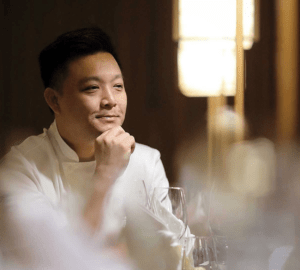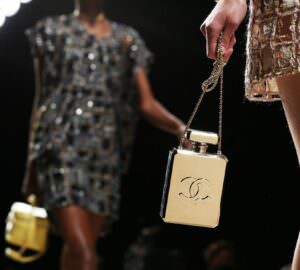Shocked that I used the dreaded `P’ word? Sorry to break it to you bro, but you will just have to suck it in and wake up to it. The `P’ word had it long coming with 2017 setting the tone for it, and #MeToo bursting the bubble from hushed tones to headlines all across the USA, and spilling into countries long subjugated into silence and the politics of shame. A momentum building so strong that women have spoken boldly (and loudly), with names of their perpetrators pulled out from secret shame diaries and buried skeletons out from graves, re-claiming their silence of shame and going out to empower other women (and men) to make #MeToo a language of equality in our work and home spaces. No other hashtag continues to fascinate the world since then.
 #MeToo Hell Yeah!
#MeToo Hell Yeah!
According to CBS News and Forbes, the #MeToo hashtag which went viral in October 2017 after actress Alyssa Milano shared her sexual assault experience on Twitter, reached across 85 countries spilling over 2.3 million tweets by November, furthermore exploding 12 million Facebook posts, and over 4.7 million people shouting #MeToo during the first 24 hours alone. The hashtag empowered women worldwide to break out on Twitter, Instagram and Facebook speaking of their oppressor(s). In a powerful sweep of expression and free speech, international celebrities, home-makers, women executives bonded in a show of solidarity and nailed producers, actors, studio heads, bosses, colleagues for their sexual harassment crimes, causing the fall of Hollywood moghul, Harvey Weinstein and other industry executives across business verticals. It was followed soon with #TimesUp, a campaign initiative to fight sexual harassment across the U.S workforce spearheaded by actor, Reese Witherspoon and Writer-Producer Shonda Rhimes. #TimesUp includes a legal defense fund seeded largely by donations from affluent women, and will push for legislation to strengthen laws regarding workplace harassment and discrimination. Saw the recent all black on red carpets (Golden Globe, Critic’s Choice, and now BAFTA has taken the fight to London) across mega award shows? In sharp contrast have you seen India’s silence? You got it.
Statistics by the National Sexual Violence Resource Center, U.S.A which have been published for a while states that `One in every four girls in our society, one in six boys, are sexually abused by someone they know by age 18. One in five women and one in 71 men will be raped at some point during their lives.” The 2016 National Crime Victimization Survey, an annual nationally representative survey of 135,000 U.S households carried out by the Bureau of Justice Statistics, estimates that at least 320,000 incidents of sexual assault and rape took place in the United States in 2016. A shocking 72 percent of sexual assaults were reported by people who were either in intimate relationships with their perpetrators (33 percent of victims), or counted the offender as an acquaintance (39 percent of victims). With that in mind, it’s no wonder the survey stated that 77 percent of sexual assaults went unreported to police.
World Champion swimmer, Diana Nyad, who became the first person at age 64 to swim from Cuba to Florida on September 2, 2013, also spoke up for being assaulted by her swim coach as a teenager, and manipulated into sexual abuse and silence. Nyad joined the hundred thousands of women across the globe shouting from the rafters #MeToo.
 #NoBalls India?
#NoBalls India?
In sharp contrast, India with a Bollywood obsessed country and a horrific and brutal crime rate against women which continues to rise despite laws on paper and cock-eyed implementation in court-rooms and police stations, did jump at #MeToo with a half hearted attempt at the opportunity, turning the focus instead on men. Newsweek correspondent, Catherine Powell wrote in her article, “In response (to 2012 Nirbhaya), the Indian government enhanced punishments for sexual assault, and created a $480 million fund for women’s safety initiatives. However, despite these efforts, reported rapes are up 40 percent from 2012 (though this may reflect that more women are reporting rape – now that there is greater awareness that it’s a crime – rather than indicating a higher incidence of rape). More recently, the #MeToo campaign has been important in increasing public awareness of sexual assault, especially among men who now view the evidence as widespread and different from looking at a statistic or data, she added. While BBC News stated rural India and her women were the most vulnerable, “as we still have thousands of brides murdered for dowry, tens of thousands of women and girls raped, hundreds of thousands of incidents of domestic violence and female foetus being aborted,” a 2016 Action Aid UK report states that 73 per cent of women in India have experienced some type of harassment or violence in public places. According to the report, north Indian states polled the highest percentages for “situations of harassment.”
 Stats don’t lie. India’s #MeToo nightmare
Stats don’t lie. India’s #MeToo nightmare
The National Crime Records Bureau 2016 statistics for India paints a dismal picture. A total of 48,31,515 cognizable crimes, comprising 29,75,711 Indian Penal Code (IPC) crimes and 18,55,804 Special & Local Laws (SLL) crimes were reported in 2016, showing an increase of 2.6% over 2015 (47,10,676 cases). IPC Crimes have increased by 0.9% (from 29,49,400 in 2015 to 29,75,711 in 2016). SLL Crimes by 5.4% (from 17,61,276 in 2015 to 18,55,804 in 2016). Crimes against women in India sees no respite and continues to rise. The NCRB report states that cases under ‘Crime Against Women’ have reported an increase of 2.9% in 2016 over 2015. The majority of such crimes were reported under ‘Cruelty by Husband or His Relatives’ (32.6%), followed by ‘Assault on Women with Intent to Outrage her Modesty’ (25.0%), ‘Kidnaping & Abduction of Women’ (19.0%) and ‘Rape’ (11.5%). Rape cases have reported an increase of 12.4% from 34,651 cases in 2015 to 38,947 in 2016. Madhya Pradesh and Uttar Pradesh reported the highest incidence, with 4,882 cases (12.5%) and 4,816 (12.4%), followed by Maharashtra 4,189 (10.7%) in 2016.
Read the whole NCRB report here: http://ncrb.gov.in/StatPublications/CII/CII2016/pdfs/NEWPDFs/Crime%20in%20India%20-%202016%20Complete%20PDF%20291117.pdf
 What use is Indian celebrity if it will not speak up? Is there a culture of silence on sexual harassment in the Indian film industry?
What use is Indian celebrity if it will not speak up? Is there a culture of silence on sexual harassment in the Indian film industry?
You bet. Despite sitting on a power house of celebrity – otherwise who shimmy at all and sundry award functions and social media noise – there is a distinct absence of black on red carpets or any show of protest, even as prominent Indian voices continue to sit silent on exploitation of women at the work places. We all know that the media, advertising, film industry is rife with `couch surfing’ stories, with or without consent, choosing instead a hypocritical `shame them’ stand on women who speak up (Kangana Ranaut, Mallika Dua, Swara Bhasker), do them over with the gun instead of debate (Gauri Lankesh), swat them into silence about physical abuse (Aishwarya Rai on Salman Khan), threaten them with unemployment. Like actor Priyanka Chopra spoke up at the 2017 Marie Claire Power Trip event, ”I don’t think there is only a Harvey Weinstein in Hollywood. I think there will be a lot more stories that will come up. Speaking up is not easy because there is an entire “big boys club” to protect the interests of such men, and take away professional opportunities from women who speak up. It’s an isolating feeling. The easiest thing to take away from a woman is her work.” Entertainment magazine iDiva suggested that “Women (in Bollywood) would speak up if the social climate was supportive.” And that “those who have spoken up have been shamed.” Instead urging us that, “We need to respect their silence whilst creating a safer climate.” Which, I believe, tells us subtly to shut up. Which defeats the very purpose of #MeToo, instead using, consciously, silence for safety as an alibi, and thereby letting these monsters thrive in an environment of assumed consent. Isn’t it time to smoke out and bell these rats? If not now, then when? Film critic, Rajeev Masand speaking to The Print vouched that, “The casting couch has been one of Bollywood’s worst kept secrets with major A-list filmmakers and actors known to be routinely guilty of the ‘practice.’ The Madh Island bungalows, the suites reserved at a popular Juhu hotel, the ‘secret den’ tucked away inside powerful producers’ offices.” So go on, Mr Masand, do us a big favour and name them. Because this `we know them, can’t name them,’ is downright hypocrisy and your consent to the further exploitation of women.
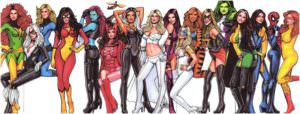 The Bad Ass is Rising
The Bad Ass is Rising
Sure enough women are shedding the `good girl’ for the `bad ass.’ Ground by the weight of keeping our heads down for years, we are rising. Rihanna, Wonder Woman, Beyonce, Priyanka Chopra, Oprah Winfrey, Kangana Ranaut, Black Widow, Olivia Pope of Scandal, Cookie Lyon of Empire, Furiosa of Mad Max, Cat Woman, the Dora Milaje of Wakanda Black Panther, Mary Kom, Queen, Rani Mukherjee of Nobody Killed Jessica, a steady and strong depiction of women on screen to reflect a coming of age in reality. We’ve had it upto our throats!
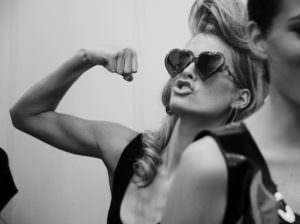
As fashion ramps bring back the power shoulder, big hair, strong jackets, long coats, bright colours, “Survival clothes of the 80s to depict how women have been treated at work places. Women are going into battle,” Vogue editor, Anna Wintour stated at New York Fashion Week, 2018 will see this year as The Year of Women around the world, who will stand up individually, and collectively, with their feats and voices, stomping foot that shakes ground, `Enough is Enough.’ India WILL have to wake up, because we cannot condone it anymore. Till then, wear your `Girl Power’ badge with pride. Our time has come. It IS Here!
My suggested Top List of Iconic Women Movies: https://www.thebetterindia.com/18586/11-powerful-women-characters-indian-cinema-show-women-can-truly-achieve/
Check these too: https://www.hercampus.com/entertainment/20-inspiring-films-feature-strong-female-lead
Photographs courtesy: Kangana Ranaut shoot by GQ, Getty Images, sourced from Google
Write to me : ethel@etheldacosta.com

